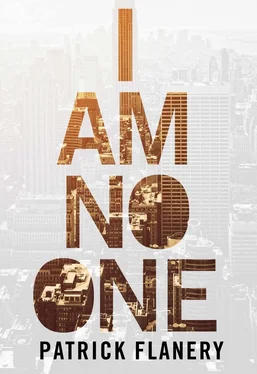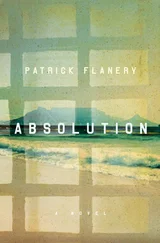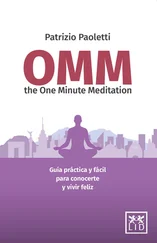‘Your daughter knows,’ a man says. ‘She learned her lessons, unlike you. Her mother brought her up well.’
‘I had a hand in that, too.’
‘Indeed?’ the man laughs, and as he does I recognize it is Stephen Jahn. ‘She can do nothing to liberate you. We have been watching for too long.’
‘I never thought—’
‘We should all assume someone may be watching, Jeremy, even though we cannot know for certain if or when they are definitely watching. We have made the world a virtual panopticon.’
‘So freedom is illusion,’ I said, working an equation in my head, a formula that, in the dream, burned neon through the burlap hood covering my eyes: Detention < Suspension < Expulsion . It was the ladder of punishment, above which remains only Execution , if we the criminals or suspected criminals are unlucky enough to find ourselves in a state with capital punishment, or a state without due process that does simply as it wishes, behind closed doors, regardless of what its laws may say. Substitute Disposal for Expulsion and the matter is soon handled, no need for a higher category.
I woke with the equation on my tongue, clear enough that I could use it as a key to the remainder of the dream, to the formulations my unconscious assembled into a dialogue. I lay in bed looking out at the white sky, the reflections on adjacent buildings, the painted advertisement across the street. Though not in a state of detention, I am at least in a state of suspension: suspension of belief in the possibility of liberty. In other words, I believe that one day soon, perhaps today or tomorrow or the next, I may no longer walk free in the world, left with nothing but the memory of an illusory freedom once enjoyed with too little appreciation for its rarity.
There is a kind of similarity between the detention I may face, in some cool white room, and the after-hours detention a misbehaving student suffers in school halls. In both cases they are attempts to coerce the detainee back into good behavior. Some petty disobedience is punished by an extra hour in confinement under the eye of the teacher, a first step on the path to suspension, always an odd punishment, a penalty that must seem like a gift to some children, being able to stay home for days or weeks, and ultimately, if such corrections fail, expulsion, the permanent exclusion from school, which must result in assignment to a different or special school. I was never close enough to anyone expelled from school to know where he or she might have ended up. Such people disappeared and in the cruel way of the young I made myself forget them. (How quickly might those I love manage to forget me?) School breaks us in with its threats of existential violence and removal from the herd, preparing us for the more profound violence of adulthood, the long stretch of life when only a verifiable claim of insanity might spare us punishment for slips of behavior that fall afoul of the laws we have ourselves allowed to be written to control and organize our lives. I once made myself a student of Althusser, finding in the latter’s formulation of Ideological State Apparatuses — schools and churches and the like — a picture of my own childhood, my experience of social indoctrination and control. Go to school and learn the lessons of society and law. Go to church for the added moral edification, inculcation of the Ten Commandments, the lessons of the Gospels, all of it preparation for submitting oneself to the Repressive State Apparatuses of the police, the courts, the military, surely also the intelligence services.
If I am detained, will there be a trial? Will I stand before judge and jury, listening as the case is argued for and against my liberty? Perhaps such trials no longer allow for the attendance of a defendant, due process judged unduly lenient. The prison sentence that might follow a less formal detention would be not unlike a suspension from school, although the metaphor begins to crack because prison removes one from home (home as the ostensibly free world outside its walls) rather than from the institution, the school, the body public, in the expectation that one’s parents would confine one at home. (Would I want, now, to be confined by my mother, the parent assuming the duties of the state, in loco imperium ?)
Pushed far enough, I can imagine a scenario in which, prison itself failing to correct my behavior, the country of my birth might try to expel me, sending me back to Britain, or even — unendurable though I would find it — to the state, which is to say the realm, the territory, the geographic kingdom of terror, land of the new caliph, whoever he may be, who decapitates his enemies as warning and sport. Then, I can imagine, my American family would think itself free to eliminate me with a specially targeted drone attack, a two-foot-long individualized missile painted with my face, steered by a boy suffering from remote PTSD in a control center somewhere deep in the wastes of Nevada.
No one in my family has ever been arrested. No one I know has ever been to prison. A citation for speeding is the worst infraction I know at close hand. No one I know has even been interrogated by the police, all of us, family and friends, the whole rippling circle, so boring and law-abiding. Crime has touched the life of my family and friends only in the form of minor victimhood: my mother’s last car sideswiped, an uncle once mugged in Central Park, a friend — the Swiss postdoctoral Fellow whose rooms were across the landing from mine that first year at Oxford — had his bank accounts emptied by Nigerian identity thieves. I imagine that if I am detained, either in America or Britain, there will be abuse, torture, some kind of physical coercion such as one imagines has been inflicted on other detainees in the first years of our new millennium, this age when humanity begins once again to dehumanize itself in the same moment that it struggles to assume total control over the planet. The historical mind thinks not only in details but also in ages, epochs, the macro as well as the micro. The Anthropocene. We are imagining ourselves into dystopia, sleepwalking into fantastic nightmares made real.
So far I have had it easy. Threat is brutal to the mind but not the body. Physical pain I fear more than mental. I can imagine how the hood so routinely placed over my head in these recurring dreams might one day be cinched tight round my neck and water poured over the cloth so that I would experience the horror of drowning on dry land only to have the sentence revoked at the last moment, mortality teased again, another reprieve, the torture of death approaching and retreating, fort, da . . And perhaps they would go too far, death arriving by accident so that I fall into her arms blind and suffocating, wet cotton sucked deep into my mouth and nostrils as we rush, Death and the Dying, along the black fringed tunnel, away from the light, into the light.
Isolation itself might be construed as torture. Am I, like Louis Pierre Althusser, no longer of sound mind? (Does my knowledge of him make me suspect? Is the Gallic too foreign?) Could I, like Althusser, strangle someone I love to the point of death? Should I also be given shock therapy? Perhaps it would have been better if I had remained at Oxford (where once every century men chase a wooden duck round a quadrangle), living in College, restricting my life within the walls of academia where eccentricities are tolerated, even valorized, just as Althusser lived out his life between the École Normale Supérieure and mental hospitals. Unlike Althusser, I am no éminence grise , no great mind revered by his nation. If I killed my ex-wife or my son-in-law there would be no excusing my crime, no one to argue my value to society as counterbalance to the horror of my acts. I am no one, a dabbler in history and philosophy, a dilettante, a movie buff who pretends to cinematic philosophy, a failed lover, a father of children who do not and may never know each other, a divorced man, a predatory teacher, an ogre who sees a desirable woman and cannot stop himself, who has no apparatus for self-control, who needs Althusser’s Repressive State Apparatuses to keep him in check, to prevent him from turning himself, however unwittingly, into a traitor not just to the state but to every individual around him.
Читать дальше












